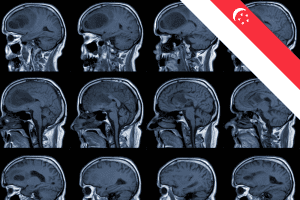Scottish singer-songwriter Lewis Capaldi has unexpectedly halted his world tour due to his battle with Tourette’s syndrome.
This decision sheds light on the importance of mental health and wellness in the music industry.
The Impact on Lewis Capaldi’s Career
Lewis Capaldi, known for his soulful voice and heart-wrenching ballads, announced via social media that he would be taking an indefinite break from touring to manage his Tourette’s syndrome. The decision came as a shock to his fans across the globe. “My health must be my priority right now,” he said, in his announcement.
Tourette’s Syndrome: A Closer Look
Tourette syndrome (TS) affects the nervous system, leading to repetitive, involuntary movements and vocalisations called tics. It’s a neurodevelopmental disorder that often begins in childhood. While the exact cause of TS is unknown, it’s believed to involve a combination of genetic and environmental factors. For example, it’s more common in people who have family members with the disorder.
The condition is characterised by both motor and vocal tics. Motor tics are physical tics, like eye blinking, head jerking, or shoulder shrugging. Vocal tics are sounds that a person with TS makes, like humming, clearing the throat, or shouting a word or phrase.
Some people with TS have tics that cause them to make offensive comments or inappropriate gestures. These types of tics, called coprolalia and copropraxia respectively, are actually quite rare, and are not a defining characteristic of the disorder.
People with TS may experience periods of tic exacerbation and remission, meaning their symptoms may get worse or better over time. Stress, anxiety, and certain other factors can make tics worse.
The severity of tics often lessens as the person moves through adolescence and into adulthood. However, some people with TS experience persistent and severe tics into adulthood.
A person with TS may require management and treatment, which may include medications, therapy, and other interventions. The social and psychological impact of the disorder can be significant, especially if the person experiences severe or disruptive tics. Many people with TS also have other conditions, like ADHD, OCD, or anxiety disorders.
Every person with TS is different. The type and severity of tics, the presence of other mental health conditions, and how the person manages their symptoms can all affect their quality of life. Some people with TS may find that their symptoms don’t interfere much with their daily life, while others may find that their symptoms cause significant challenges.
Supporting Artists: The Music Industry’s Role
The music industry is known for its demanding schedules and high-pressure environments, which can exacerbate mental health conditions like TS. There is a growing movement within the industry to support artists’ mental health and well-being. Adequate support structures can be pivotal in enabling artists to sustain long and fulfilling careers.
The Fans Respond
Lewis Capaldi’s fans showed an overwhelming display of support as he faced challenges during his set. Known for his openness about having TS and anxiety, Capaldi encountered voice difficulties and visible tics throughout his performance. However, his fans stood by him, praising his bravery and transparency.
As the hour went on, it was evident that Capaldi was struggling with his voice. He humbly addressed the crowd, admitting, “I’m going to be honest, everybody, but I’m starting to lose my voice up here. But we’re going to keep going… until the end. I just need you all to sing with me as loud as you can if that’s okay?” The response from the crowd was remarkable.
Capaldi’s mega-hit, “Someone You Loved,” began, and his voice had nearly faded away. Yet, his devoted audience took charge, singing the lyrics back to him with unwavering enthusiasm. Capaldi stood on stage, soaking in the beautiful sight—a sea of smiling faces as far as the eye could see, united in song.
The fans’ response to Capaldi’s struggles was incredibly heart-warming. Social media platforms were flooded with messages of encouragement and stories from individuals who could relate to his experiences with TS. The fan community rallied together, showcasing their unwavering support.
In the face of adversity, Capaldi’s fans demonstrated their love and support without hesitation. Their response highlighted the incredible bond between an artist and their audience, and the profound impact it can have on uplifting and inspiring others.
Key Takeaways
Lewis Capaldi’s decision to take a break from touring highlights the importance of prioritising mental health, particularly in high-pressure careers like music. TS requires understanding and support. The music industry and fans play a vital role in supporting artists through such challenges.
References
- France, L. R. (2023, June 28). Lewis Capaldi announces break from tour, citing impact of Tourette syndrome | CNN. CNN. https://www.cnn.com/2023/06/28/entertainment/lewis-capaldi-tour-break/index.html
- World Health Organization (2023, February 27). Mental Health and Substance Use. https://www.who.int/teams/mental-health-and-substance-use/overview
- Cross, J. (2006, April). MEDLINE, PubMed, PubMed Central, and the NLM. Editors’ Bulletin, 2(1), 1–5. https://doi.org/10.1080/17521740701702115
- Tourette Syndrome. (2023, February 1). National Institute of Neurological Disorders and Stroke. https://www.ninds.nih.gov/health-information/disorders/tourette-syndrome











